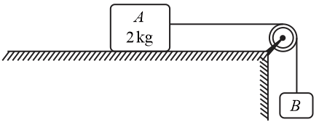The minimum force required to start pushing a body up a rough inclined plane (frictional coefficient ) is while the minimum force needed to prevent it from sliding down is . If the inclined plane makes an angle from the horizontal such that, , then, the ratio is

Important Questions on Friction
What is the maximum value of force such that, the block, shown in the arrangement, does not move?
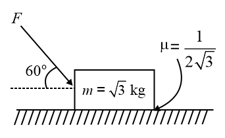
The system shown in the figure is in equilibrium. The maximum value of so that, the maximum value of static frictional force on body is , will be
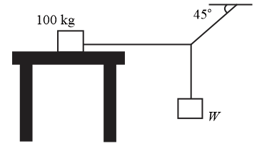
A horizontal force of is necessary to just hold a block stationary against a wall. The coefficient of friction between the block and the wall is . The weight of the block is
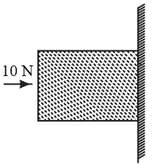
Two masses and of , respectively, are connected with a string passing over a frictionless pulley fixed at the corner of a table, as shown in the figure. The coefficient of static friction of with the table is . The minimum mass of , that may be placed on , to prevent it from moving, is
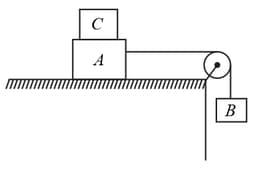
A force pushes a block weighing against a vertical wall, as shown in the figure. The coefficient of friction between the block and the wall is The minimum value of , to start the upward motion of block, is
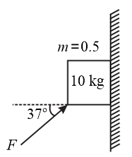
If the coefficient of friction between and is , the maximum horizontal acceleration of the wedge , for which will remain at rest with respect to the wedge, is
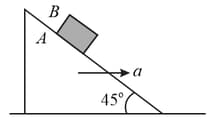
A block of mass is acted upon by a force , at an angle with the horizontal, in the downward direction, as shown. The coefficient of friction between the block and the horizontal surface is . The frictional force acting on the block by the ground is
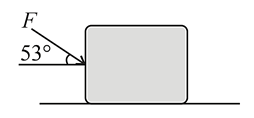
The coefficient of static friction between block of mass and the table, as shown in the figure, is What would be the maximum mass of block , so that the two blocks do not move? (The string and the pulley are assumed to be smooth and massless)
